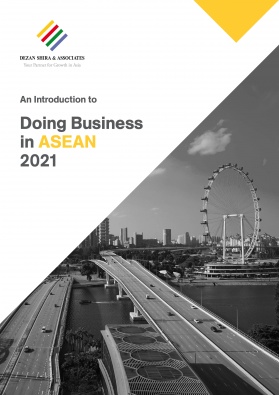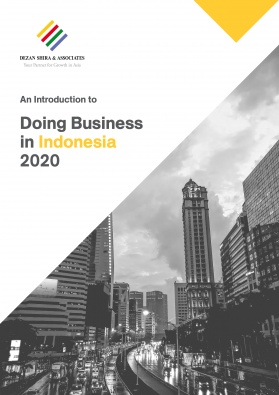Indonesia Increases Paid-up Capital Requirements for Foreign Companies
- In April 2021, Indonesia’s Investment Coordinating Board issued BKPM Regulation 4 of 2021 regarding an increase of paid-up capital requirements for foreign investors.
- A foreign investment company is now required to have 10 billion rupiah (US$696,565) in paid-up capital, up from the previous 2.5 billion rupiah (US$174,135).
- Through these changes, the government aims to attract more high-value investments into the country.
In April 2021, Indonesia’s Investment Coordinating Board (Badan Koordinasi Penanaman Modal BKPM) — the government agency responsible for spurring foreign and domestic investment — issued BKPM Regulation 4 of 2021 (BKPM Reg 4/2021) regarding an increase of paid-up capital requirements that foreign investors have to pay when establishing a company in Indonesia.
A foreign investment company (perusahaan milik asing (PT PMA)) is now required to have 10 billion rupiah (US$696,565) in paid-up capital, up from the previous 2.5 billion rupiah (US$174,135), as the government aims to attract more high-value investments into the country.This investment value excludes any investments for land or buildings. Establishing a foreign investment company, or PT PMA is the preferred structure for companies looking to have a legal presence in Indonesia.
BKPM Reg 4/2021 will come into effect from June 2, 2021.
Exceptions to additional investment requirement
There is an exception on additional investment when the company is engaged in selected business activities. These are as follows:
A PT PMA engaged in the food and beverage industry with a total investment value of more than 10 billion rupiah (US$696,565) (excluding land and buildings) will not be required to add another 10 billion rupiah — if it engages in another business line that is still within its two initial digits of the Standard Classification of Indonesian Business Fields (KBLI) number.
The KBLI sets out the specific field (and code), which a business is addressed to. The company must determine which KBLI code they fall under and whether this is open to foreign investors.
For instance, a PTM engaging in the trading of fruits falls under the KBLI code 46312. The company wants to expand its business line to the trading of vegetables under the KBLI code 46313. Since the first two digits of the KBLI codes are the same, the company is only required to meet the 10 billion rupiah (US$696,565) investment value (excluding land), and thus it is not doubled to 20 billion rupiah (US$1.39 million). This will only apply if the first two numbers of the KBLI are different.
For businesses engaging in large-scale trading or construction, the aforementioned KBLI rules apply to the first four digits of the code. Finally, for industrial activities that produce various products, there needs to be five matching KBLI numbers in order not to spend an additional 10 billion rupiah (US$696,565) for paid-up capital.
Indonesia’s ongoing business reforms
The changes granted under BKPM Reg 4/2021 are part of Indonesia’s ongoing reforms to improve its investment climate.
Foreign investors must now face a new criterion to obtain business licenses in the country. In addition to having the necessary paid-in capital, business licenses will now be issued based on the assessment of ‘business risk level’ determined by the scale of hazards a business can potentially create.
This will comprise of:
- Identifying the relevant business activity;
- Assessing the hazard level;
- Assessing the potential occurrence of hazards;
- Determining the risk level and business scale rating; and
- Determining the type of business license.
Based on the aforementioned risk analysis, the applicant company will be classified into one of the following risk-level types:
- Low-risk businesses;
- Medium-low risk businesses;
- Medium-high risk businesses; and
- High-risk businesses.
The lower the business risk, then the simpler the process to attain a business license. High risk-business activities may need approval from the central or regional government whereas low-risk activities will only need to obtain a business registration number.
About Us
ASEAN Briefing is produced by Dezan Shira & Associates. The firm assists foreign investors throughout Asia and maintains offices throughout ASEAN, including in Singapore, Hanoi, Ho Chi Minh City, and Da Nang in Vietnam, Munich, and Esen in Germany, Boston, and Salt Lake City in the United States, Milan, Conegliano, and Udine in Italy, in addition to Jakarta, and Batam in Indonesia. We also have partner firms in Malaysia, Bangladesh, the Philippines, and Thailand as well as our practices in China and India. Please contact us at asia@dezshira.com or visit our website at www.dezshira.com.








